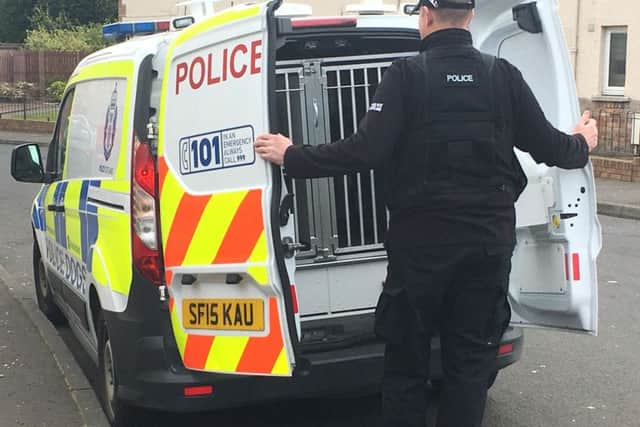Kenny MacAskill: Why Scotland should look to Europe, not US, on drugs
and live on Freeview channel 276
The nature of crime itself has changed with people trafficking and cybercrime emerging in our new globalised economy and increasingly dislocated world, and posing new challenges for law enforcement.
Scotland isn’t immune as has been shown, even if the scale is slightly less than in other areas. Steps such as the establishment of a Serious and Organised Crime Task Force and the state-of-the-art Crime Campus at Gartcosh have been of huge assistance. It’s over a decade since I set up the latter and a few years less since the former was opened. But still the threat increases and the challenges grow.
Advertisement
Hide AdAdvertisement
Hide AdCrime’s a global industry and as much, if not more, is now over the internet as on our streets.


Some gangsters have moved into new areas where profits can be greater and risks lesser than in the old world of narcotics. New gangs, many sited on the other side of the world, now pose huge challenges. Support to address those threats will be required.
But still, at the heart of it in Scotland, lies the drug trade. The deplorable violence referred to by Lord Mulholland as he jailed members of a Glasgow gang this week was nothing to do with fights and squabbles over ice cream vans or long-standing clan enmities.
Supply and demand of narcotics is what’s driving that escalation of violence. And it has increased not just since I first started practicing law in Glasgow in 1980 and heroin was coming onto our streets but even since I stepped down as Justice Secretary less than four years ago.
Advertisement
Hide AdAdvertisement
Hide AdDuring my tenure in office, drug debts went from being dealt with by a stab in the buttocks to the production and use of a firearm.
Warrants for covert surveillance routinely involved both drugs and firearms which went together, almost like salt and pepper. It was easy to spot that the violence happening in Liverpool or South London was moving north and so it has come to pass.
The irony is that Scotland is a much safer place now for most of us. Violence has declined and the streets are safer. That has come about through many factors but, in particular, addressing violence as a public health issue, seeking to change attitudes and behaviour, as much as law enforcement, and it’s little wonder that London now looks to the Glasgow model.
But in the underworld of drug dealing it’s getting worse. Surely then lessons should be learned. Violence in our communities wasn’t greatly reduced by “getting tore intae them” or “giving them a right good hiding”. A macho culture required addressing, as well as alcohol abuse. But it has worked. Violence is cracked down on by police and dealt severely with by the courts but at its heart the model seeks to change attitudes in schools and in our towns and cities.
Advertisement
Hide AdAdvertisement
Hide AdDrug wars in our streets won’t be ended by an escalation of the conflict. The USA has more law enforcement resources than we can ever have and still it’s worse there than here. Mexico was concerned about corruption of its local police and so put in the Federal Police who in turn were corrupted. Now it’s the army and their undermining will also occur, such is the money and profits available.
It’s time to treat drugs as a health not just a criminal justice issue. Some jurisdictions have done it, such as Portugal, and others are moving in that direction with the provision of drug consumption rooms or even the legalisation of cannabis.
Of course, there’s no simple solution for drug abuse as it’s driven more by trauma and despair than hedonism. Portugal is by no means the promised land. People still take drugs and die from their abuse. But the country has still made clear progress in many areas and in particular a decline in serious criminality related to drugs.
The idea of the Algarve becoming the drug Mecca for Europe’s “junkies” has been shown to be total nonsense. Portugal is healthier, safer and better for their enlightened actions across a huge swathe of indices.
Advertisement
Hide AdAdvertisement
Hide AdSo, we have a choice. Follow the American model and escalate the war or a European route of treating it as a health issue, addressing demand rather than just supply. Neither offers a complete solution but, as with Brexit, I know which world I’d rather live in.
